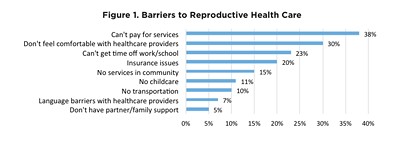Is the Women's Health Program Dead?
Feds won't agree to exclude PP
By Jordan Smith, 7:29AM, Tue. Dec. 13, 2011

In a letter dated Dec. 12, the Department of Health and Human Services' Centers for Medicare and Medicaid Services has denied Texas' bid to renew the successful Women's Health Program, citing the state's impermissible narrowing of the provider base to exclude from participation Planned Parenthood.
The WHP is a Medicaid-waiver program that offers low-income and uninsured women who wouldn't otherwise be eligible for Medicaid, unless pregnant, an opportunity to receive preventative health and family planning care. The program, devised by lawmakers in 2005, was conceived as a way to save the state money and to prevent unwanted pregnancies. It has so far done just that: In calendar year 2009, according to the Health and Human Services Commission, the program averted 10,300 Medicaid-paid births, saving the state roughly $46 million in all funds. Indeed, the program is paid for by a 90-10 match from the feds – that is, for every $1 the state kicks in, the feds throw in $9. In other words, it's a great deal for Texas – especially when you consider that more than half of all Texas births are paid for by Medicaid; in 2009 alone that cost the state nearly $3 billion.
But the future of the program is now in jeopardy. At issue is new language crafted to eliminate Planned Parenthood from providing any WHP services. This is no small issue, given that in 2008 PP was the single largest provider of WHP services. But because some PP clinics provide legally-protected abortion services – though none with tax money – lawmakers directed HHSC to ask the feds to reauthorize the program, but with new language that redefines the word "affiliate" in an effort to squeeze PP out of the loop. Because the WHP is a waiver program it is up to the feds to consider whether the language fits with legal restrictions for funding under Title XIX, which funds Medicaid.
The prevailing wisdom has been that targeting a specific provider – in this case PP – from participation would not pass legal muster. Indeed, in the Jan. 12 letter, CMS concludes that the new "affiliate" language does just that. The feds "will not approve the State's request for authority to deviate from the requirements of [Medicaid] in order to restrict beneficiary choice of family planning providers," CMS Director Cindy Mann wrote. Indeed, although the initial WHP waiver contained a provision excluding abortion providers from participation, that measure was never enforced as a wedge to exclude PP from participation. In rewriting the waiver application this Spring, and at the behest of a number of GOP officials – including, notably, Sen. Robert Deuell, R-Greenville – the language was strengthened to make it as clear as possible that women in the program would not be allowed to choose PP as a healthcare provider.
Seeing the WHP crash and burn would not be good for Texas women. With draconian cuts to the state's family planning budget, the WHP was seen by many as a light in an otherwise bleak landscape – a potential way for women cut from services because of the gutting of the family planning program to obtain much needed services, including screenings for cancers and access to birth control.
According to the CMS letter, the agency remains open to working with Texas to ensure that the WHP will be renewed, and has agreed to allow the program to continue through the end of March 2012 – it was set to expire, pending renewal, on Dec. 31; whether Texas will be willing to compromise on language in order to see the program live on is unclear. In a statement issued Monday, Gov. Rick Perry didn't exactly set that as a priority, and instead re-urged the state's position – that by denying women access to their choice of health care providers, the state is actually protecting unborn children. "We are committed to protecting life in Texas, and state law prohibits giving state dollars to abortion providers and affiliates – a fact the Obama Administration ignores," he said. "I strongly urge the administration to do the right thing and grant this waiver, so Texas women can access critical preventative health services, including breast and cervical cancer screenings, rather than making them pay the price for its pro-abortion agenda."
Got something to say on the subject? Send a letter to the editor.
A note to readers: Bold and uncensored, The Austin Chronicle has been Austin’s independent news source for over 40 years, expressing the community’s political and environmental concerns and supporting its active cultural scene. Now more than ever, we need your support to continue supplying Austin with independent, free press. If real news is important to you, please consider making a donation of $5, $10 or whatever you can afford, to help keep our journalism on stands.
Mary Tuma, June 29, 2020
Mary Tuma, May 12, 2015
Richard Whittaker, Aug. 28, 2014
Richard Whittaker, June 24, 2014
May 22, 2014
Elections, Election 2012, Planned Parenthood, Women's Health Program, WHP, Medicaid, Legislature, Rick Perry, Abortion, Family Planning, War on Women, Women's Health












